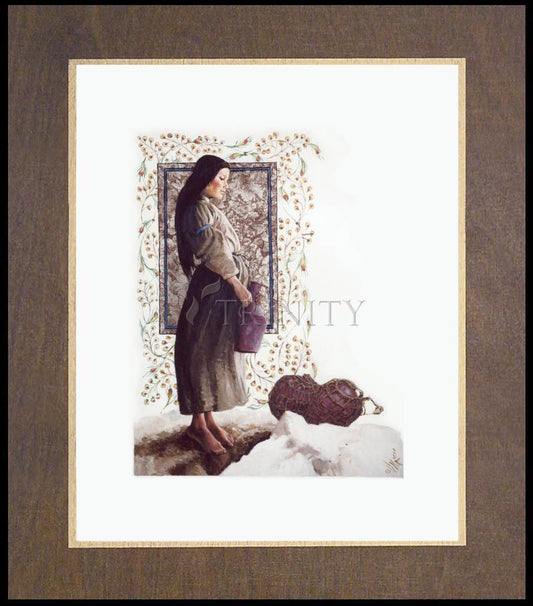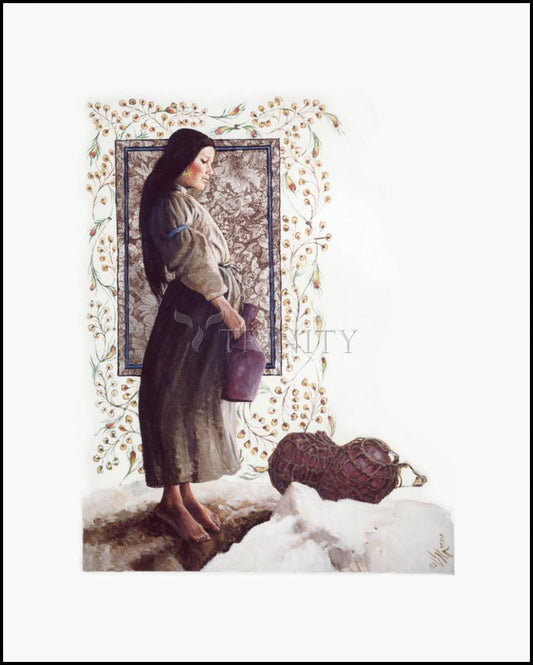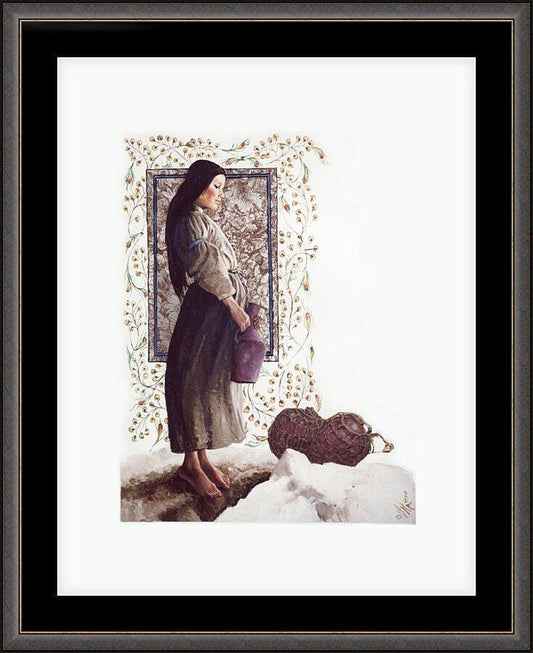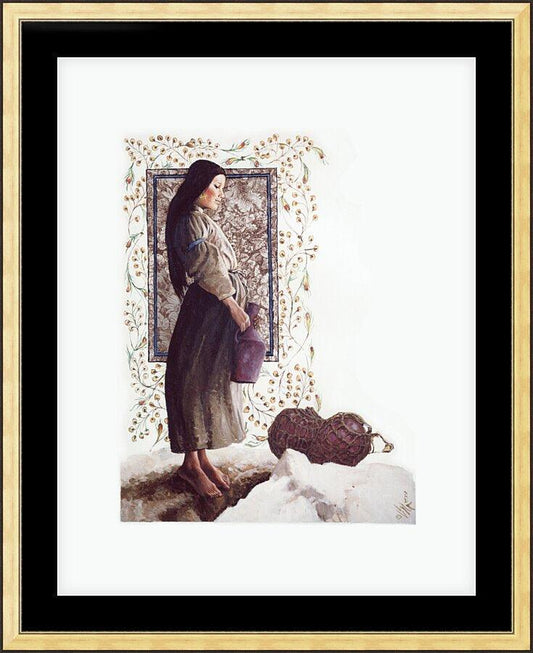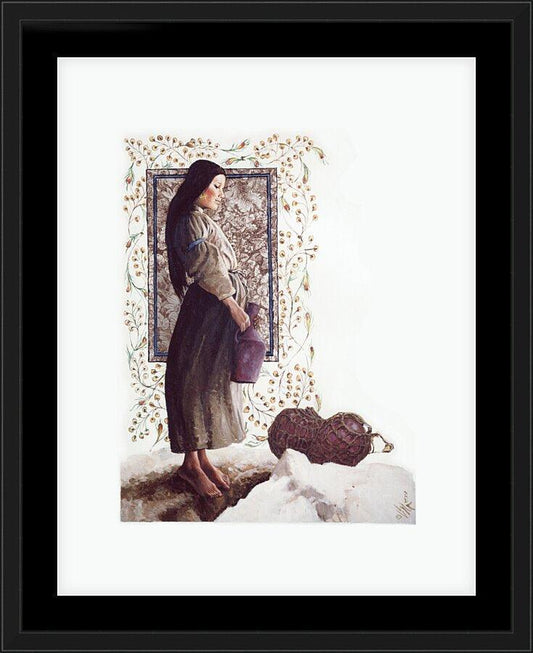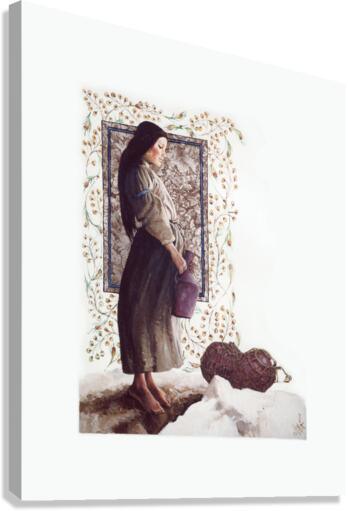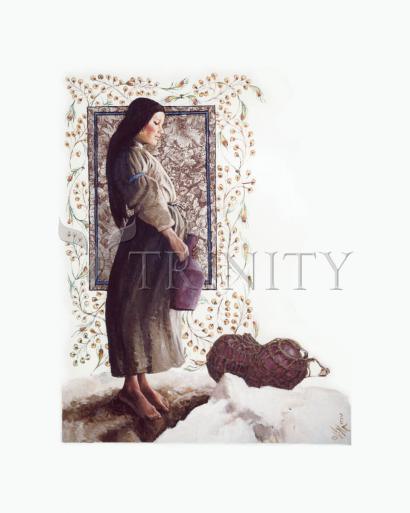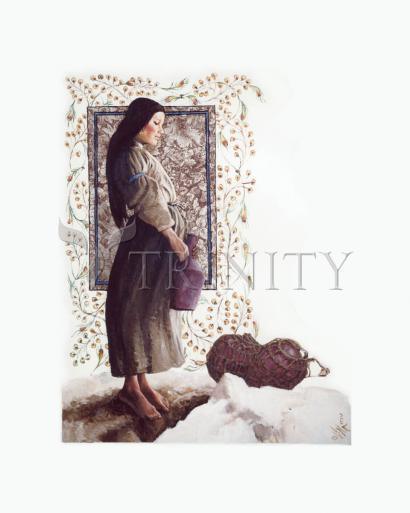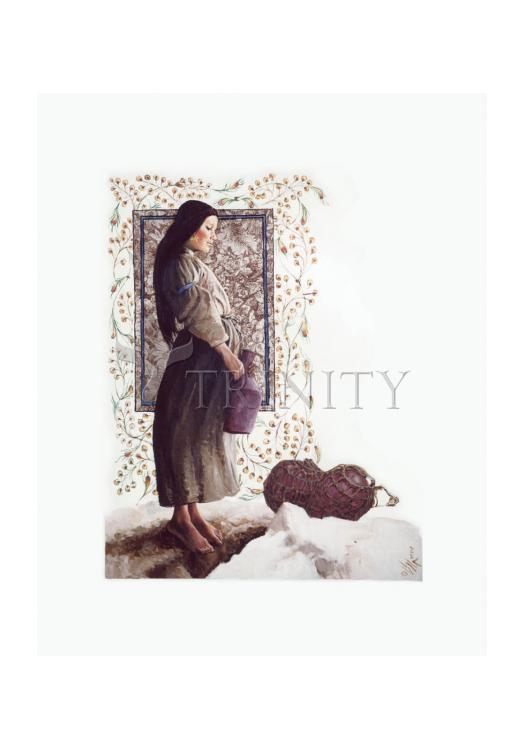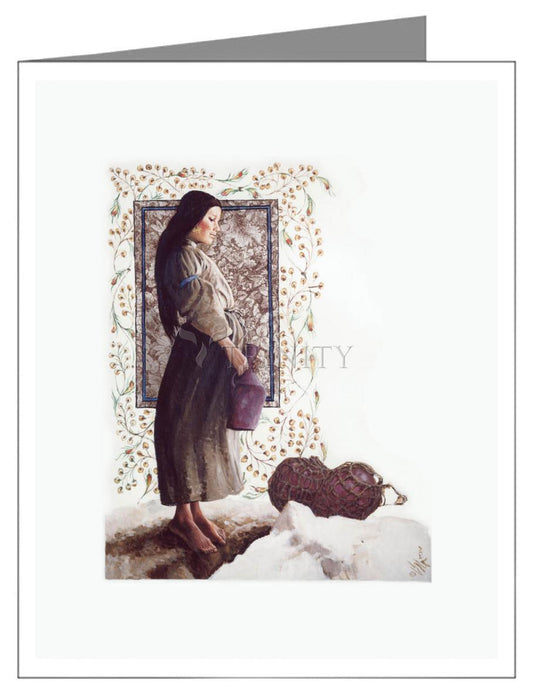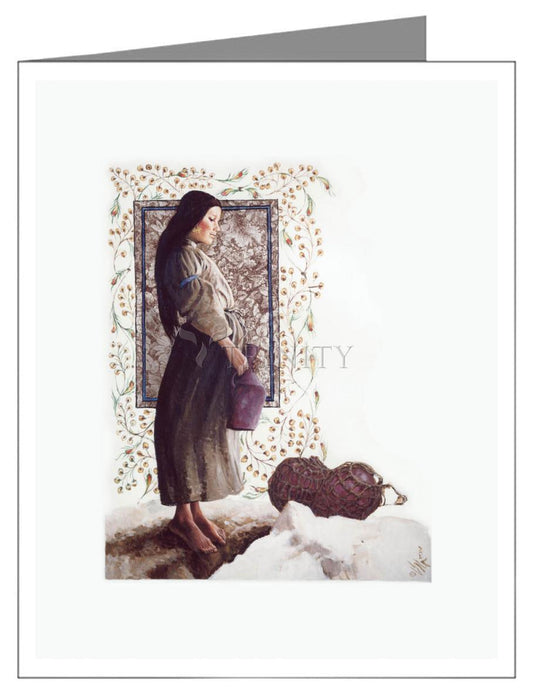John's gospel says that Jesus, setting out from Jerusalem for his native Galilee, "had" to pass through Samaria. He had to come to the Samaritan town called Sychar, to Jacob's well. There he had to meet the Samaritan woman.
Not just by chance did Jesus, the Savior, enter that land whose people were so bitterly opposed to their neighbors, the Jews of Judea and Galilee. Not by chance did he come to Sychar, a place of holy memories, near the beautiful site where God promised Abraham, "to your descendants I will give this land"; to Jacob's ancient well where the people of the town still came for water.
"It was about noon, and Jesus, tired after his journey, was sitting by the well." A Samaritan woman came to the well for water.
What a strong, unconventional woman she must have been! She came alone to the well at noon, not the usual morning or evening time when women of the town came in groups with their water jars. Nor does she hesitate at the sight of a man sitting alone at the well.
How forceful and sarcastic her answer when Jesus asks for a drink! "What! You a Jew, ask for a drink from a Samaritan woman?" The ancient feud between Jews and Samaritans rises in her blood.
Yet the weary man persists, talking of human thirst and the living waters God provides. Gradually, as he talks of higher things, the woman recognizes he has more to give than water from the well; he fulfills all the memories associated with ancient sacred place.
He tells something, however, she would rather not hear. "You have had five husbands, the man you are living with now is not your husband."
She must have heard it less as an accusation than as the truth, for she doesn't turn away. More than accusing her, she felt him refreshing her soul's thirst.
Eager and inspired, she put down her water jar and hurried to the town to tell her neighbors about the one she met. For two days Jesus stayed in that town. The tired gentle Jew, who sat by Jacob's well, was welcomed as a Savior.
"Excerpts from Meditations and Prayers for the Third Week of Lent by Victor Hoagland, C.P. John 4: 4-42



